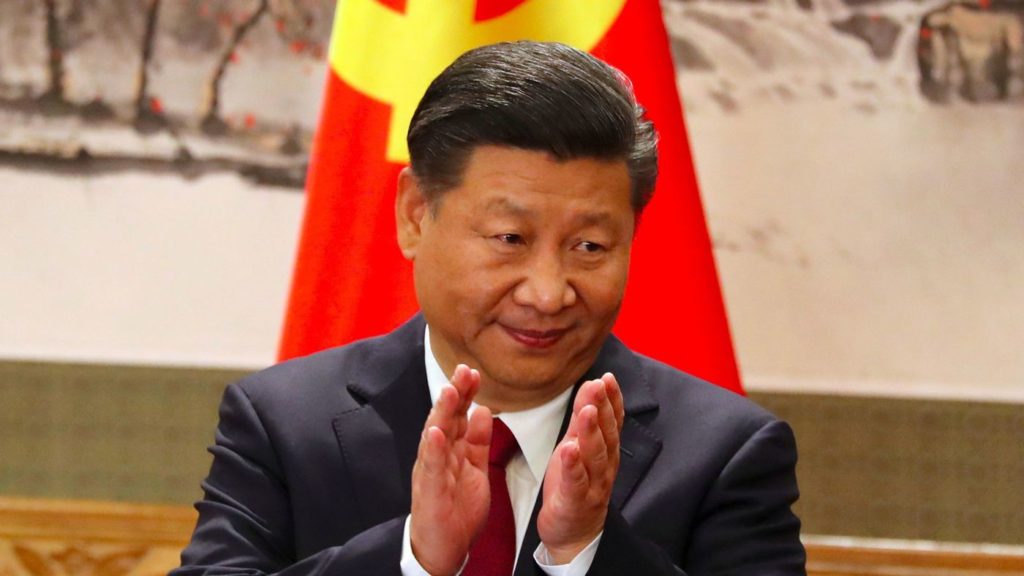The President of the People’s Republic of China is the head of state and top leader of China who serves as the President, the head of the party, and the commander-in-chief of the military (as Chairman of the Central Military Commission). President meets foreign dignitaries and receives ambassadors in his capacity as President, issues military directives as Chairman of the Central Military Commission and upholds party rule through the office of General Secretary. The current President is Xi Jinping, who took office in March 2013.
The Presidency has been limited to serve up to two terms of five years each but in March 2018 this limitation was lifted. China’s largely rubber-stamp parliament overwhelmingly voted to amend the constitution, scrapping term limits and adding clauses to further strengthen the party’s already dominating role in politics. In the Great Hall of the People in Beijing, nearly 3,000 delegates of the National People’s Congress, the party-controlled legislature, voted almost unanimously to approve an amendment
Now the Chinese President Xi Jinping may never have to retire. The question now is how the China’s leaders is going the way of Chairman Mao Zedong, the communist revolutionary who heavily centralized power. Mao ruled China from 1949 until his death in 1976.
Under Xi, China asserted itself in Asian affairs, renewing its territorial claims in the South China Sea. It has issues with all of its neighbours from Vietnam to India to North Korea to Russia to all. With that it has boosted its military capabilities and unveiled a vast international logistics and transportation project called the “Belt and Road” initiative that aims to connect Asia, Europe, the Middle East and Africa. Xi used China’s relationship with North Korea as leverage with Washington when the rest of the world is in flux and China believes the time is ripe for it to stake out its global leadership role. Xi has set out his vision and is in position to oversee its execution. For this, he wants to be “Dictator.”
China wants to do business in the world and capture markets, build roads, railways but Lu Kang, a ministry spokesman, felt that China’s constitution was something that only Chinese should have a say in. “I hope everyone can acknowledge the voice of all the Chinese people,” he said. We are increasingly confident that the key to China’s path lies in upholding strong Party leadership and firmly following the leadership of the Party Central Committee with Comrade Xi Jinping at the core. “In these years we have seen the rise and decline of countries and particularly the harsh reality that the Western political system doesn’t apply to developing countries and produces dreadful results.” So their alternative to modern day politics is Single Party Rule and One Man Rule.
The U.S.-based group Human Rights in China said there were huge risks in allowing such a concentration of power. The Rise of Authoritarianism exposes the Chinese people again to the massive human suffering, abuses and national catastrophe that could result from unaccountable power concentrated in the hands of one person. Also, many small medium countries who are already suffering from China high handiness feel deprived. Xi is reminding China, and everyone else, that he will be calling the shots for years to come. And he will join such leaders as Vladimir Putin of Russia and Recep Tayyip Erdogan now. Xi has a greater platform than any of them, leading the nation with the largest population and second-largest economy.
For India, the emergence of Authoritarian Government in its background is not good for Democracy or for collective decision making. Already on the 200-member Central Committee, the majority is said to be close to him. In the Xi-headed 25-member Politburo, the second most powerful body in China 14 is believed to be his supporters. Under Xi, China has made deep inroads into South Asia, a sphere of influence of India. It is building infrastructure projects worth over $50 billion in Pakistan and has also taken a key Sri Lankan port on a 99-year lease. It has trapped Nepal and has key projects in the Maldives. Who do no the Doklam standoff and uneven trade with trade nearly more than $50 billion surpluses. It has created an uncomfortable situation in South Asia during this time a Single Leadership can harm or change the game as India has to go for Elections every Five Years and it has to get approvals from Parliament for all decisions but for China, it is only one that is Xi Jinping…he is the way.
Disclaimer: The opinions expressed in this article are the personal opinions of the author. The facts and opinions appearing in the article do not reflect the views of NEWSD and NEWSD does not assume any responsibility or liability for the same.


















